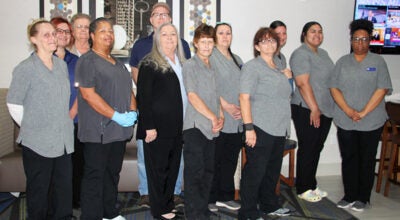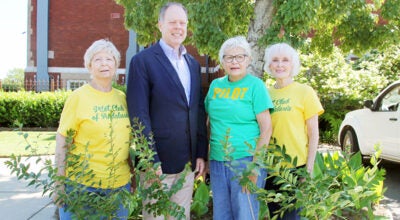Stimulus funding pine restoration
Published 11:59 pm Monday, August 31, 2009
A $1.8 million federal stimulus grant to revitalize longleaf pine tree habitats in Alabama could help provide local jobs and improve the state’s ecosystem, said Rhett Johnson, president of the non-profit Longleaf Alliance.
Johnson said the Alliance, which is based out of the Dixon Forestry Center in the southwestern part of Covington County, will partner with the U.S. Forest Service to help “plan and schedule” numerous projects.
Some of the planned projects include restoring longleaf pines in the Chocolocco State Forest and the Geneva State Forest, harvesting pine cones in the Geneva State Forest and providing scholarships for private forestry and wildlife consultants to attend the Alliance’s “longleaf academy” seminars at the Dixon Forestry Center.
“This is money that has to be spent in 18 months, and the U.S. Forest Service didn’t want to hire a state employee and then have to terminate them once the money’s gone,” Johnson said. “So, the Service has asked the Alliance to serve as the ‘general contractor’ for these projects. We’ll bid out the various projects, and it’s possible that some local people could end up doing some of the work.”
Other than work in some parts of the Geneva State Forest, none of the federally-funded projects are slated to take place within Covington County, Johnson said. However, the grant will provide dividends for the Alliance, which holds eight “academies” each year.
“Some of the money will help us provide scholarships,” he said. “We’re also getting a little bit in funding to develop some outreach materials.”
Johnson said the Alliance could begin opening bids on some projects as early as Sept. 8.
The Longleaf Alliance, Inc., is a non-profit conservation group that functions as an advocate for the retention, restoration and management of longleaf ecosystems across the Southeast. The Alliance has been in operation as an independent organization since 1995 and is closely associated with the School of Forestry and Wildlife and Sciences at Auburn University.
“We do some limited applied research,” Johnson said. “But our real function is education, outreach and technical assistance.”




